Extra £1.2bn for Wales in Budget and growth deals promise
- Published
- comments
Chancellor Philip Hammond highlights specific benefits for Wales in his Budget
Chancellor Phillip Hammond has said the Welsh Government will get an extra £1.2bn over four years as a result of his Budget.
The money will come to Wales because of extra spending on projects in England - under the so-called Barnett formula.
The cash amounts to a rise of around 2% in the Welsh Government's budget.
Welsh ministers said the additional cash would "do little to ease the pressure" on public services struggling after "successive cuts to our budget".
But Welsh Secretary Alun Cairns said Mr Hammond's Budget "delivers for Wales".
The chancellor also said the UK government would "begin negotiations towards" growth deals to boost the economies of north and mid Wales.
Meanwhile the UK ministers said that a planned cut to stamp duty land tax for first time buyers - which means buyers of homes worth up to £300,000 will not pay it - would apply in Wales until April 2018 when the tax is devolved.
Mr Hammond confirmed tolls on the Severn crossings would be scrapped by the end of 2018, first announced in July.
Budget documents confirmed UK ministers would "begin formal negotiations towards a north Wales growth deal" and "consider proposals for a mid-Wales growth deal", working with local partners and the Welsh Government.
The documents said the proposal for stamp duty relief "applies in Wales until April 2018, when it is devolved and the Welsh Government's new Land Transaction Tax is introduced".
"It will be for the Welsh Government to make any decisions about introducing future reliefs in Land Transaction Tax," the UK government said.
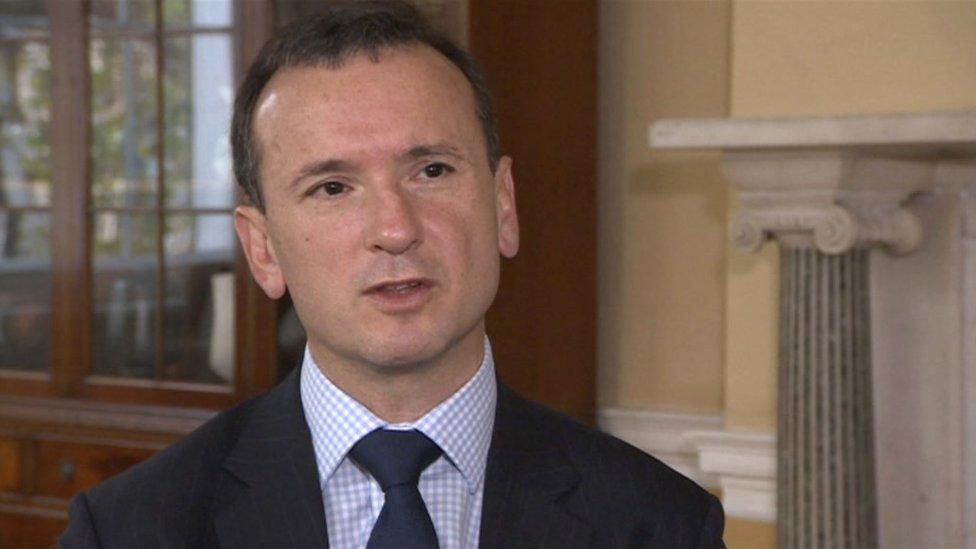
Alun Cairns says the budget shows the UK government is ambitious for Wales
Under current plans for the new Welsh tax, home sales up to £150,000 will be tax free, but there will be significantly higher rates for house sales above £400,000.
Wales' Finance Secretary Mark Drakeford told BBC Wales he could change elements of the Welsh tax before April, as the regulations had not yet been laid at the assembly.
He said: "We will look at stamp duty. We have left ourselves with space if we need to make changes."
Mr Hammond's Budget also announced plans for rail lines to be upgraded to allow direct services between Pembroke Dock and London via Carmarthen on the new Intercity Express trains.
The Department for Transport will continue to develop proposal for other rail schemes, budget documents said, including "station improvements at Cardiff Central station and Swansea, improving Cardiff to Severn Tunnel Junction Relief Lines, and improving journey times between: Swansea and Cardiff; South Wales, Bristol and London; and on the North Wales Main Line".
"The government will also consider proposals to improve journey times on the Wrexham-Bidston line and provide necessary funding to develop the business case," it added.
Mark Drakeford said the budget does not mean the end of austerity in Wales
Mr Cairns said: "The commitment to formally enter into negotiations over a growth deal for north Wales as well as kick starting early discussions for a growth deal for mid Wales are significant pan-Wales announcements," he said.
"The move to improve rail services for businesses, workers and visitors from both sides of the Wales-England border, taken with the abolition of the Severn Tolls is also a clear demonstration of the UK government's ambition to move the Welsh economy into the fast lane."

Analysis by David Cornock, BBC Wales parliamentary correspondent
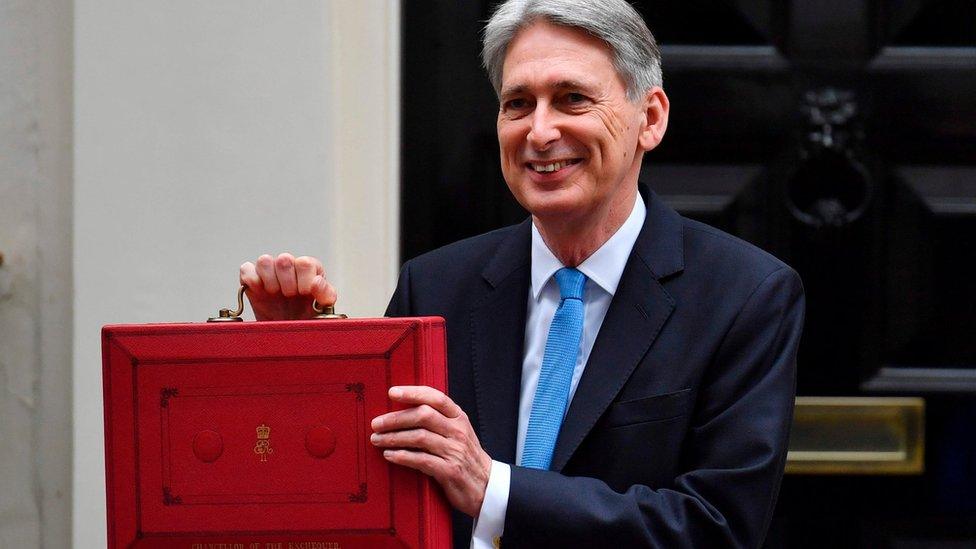
Budgets at Westminster tend to follow a pattern. The UK government announces extra spending for Wales and adds the annual increases together making a larger sum that looks smaller when you press the percentage button on your calculator - and divide by the number of years the announcement covers.
The Welsh Government responds by pointing out how much its budget has been cut since 2010. Phrases such as "smoke and mirrors" and "strings attached" are used in interviews.
This year its main complaint is that two-thirds of the extra cash comes in the form of "financial transactions", which ministers in Cardiff say they will have to give back.
Or as the UK government prefers to describe them "simply a different tool that allows government to help individuals and boost private sector investment in a targeted way".
At Westminster, opposition MPs have complained that the proposed Swansea Bay tidal lagoon - to no-one's great surprise - does not feature in the Budget.
Ministers say there is nothing significant in its absence but it remains one of those projects that is supported by everyone - except (so far) those who would be accountable for spending public money on it.
Give us the tools to invest in Wales, says Plaid Cymru MP Jonathan Edwards

The Welsh Government said that more than half of the £1bn in extra capital funding over four years, including the current financial year, for schemes such as schools, roads and hospitals, would have to be repaid to the UK Treasury.
Welsh ministers said the additional money for day-to-day spending amounted to £215m over a three year period.
Mr Drakeford said: "While these small increases in the resources available to Wales are to be welcomed as they will help support our priorities, this additional funding will do little to ease the pressures on frontline public services, which have been struggling to cope as a result of the successive cuts to our budget we have experienced since 2010-11.
"Even with this additional funding, the Welsh Government's budget will be 5% lower in real terms in 2019-20 than it was in 2010-11."
Plaid Cymru treasury spokesman Jonathan Edwards MP said Wales' roads and railways were being "neglected whilst Welsh taxpayers' money is pumped into London".
"The only way we can build Wales, drive up wages and spread prosperity, is to demand the tools to do it ourselves," he said.
UKIP Wales criticised Mr Hammond's failure to mention the proposed Swansea Bay tidal lagoon, 10 months after it was backed by a government commissioned independent review, external.
A party spokesman said: "UKIP has welcomed this opportunity for Wales to become a world leader in harnessing the vast potential of tidal energy, but it doesn't appear to be a priority for Philip Hammond."
- Published22 November 2017
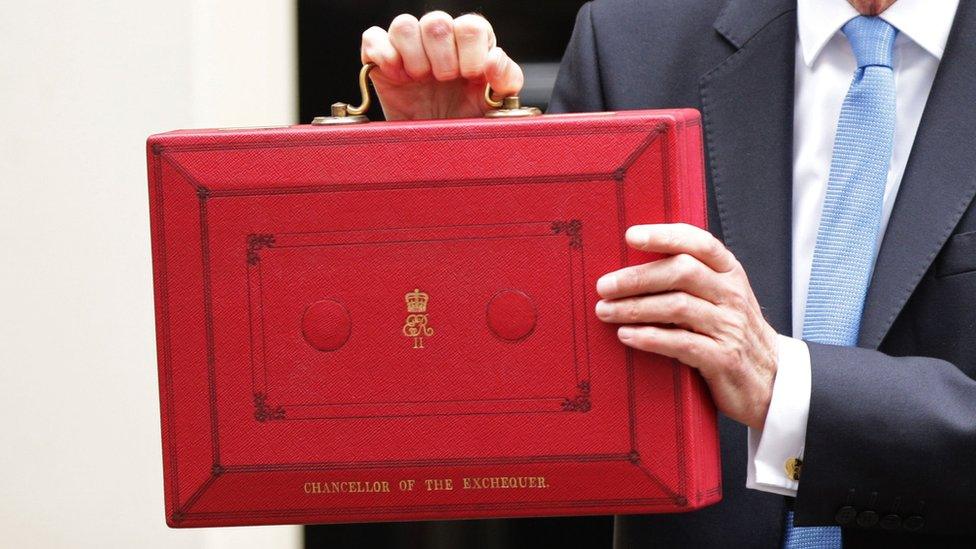
- Published22 November 2017
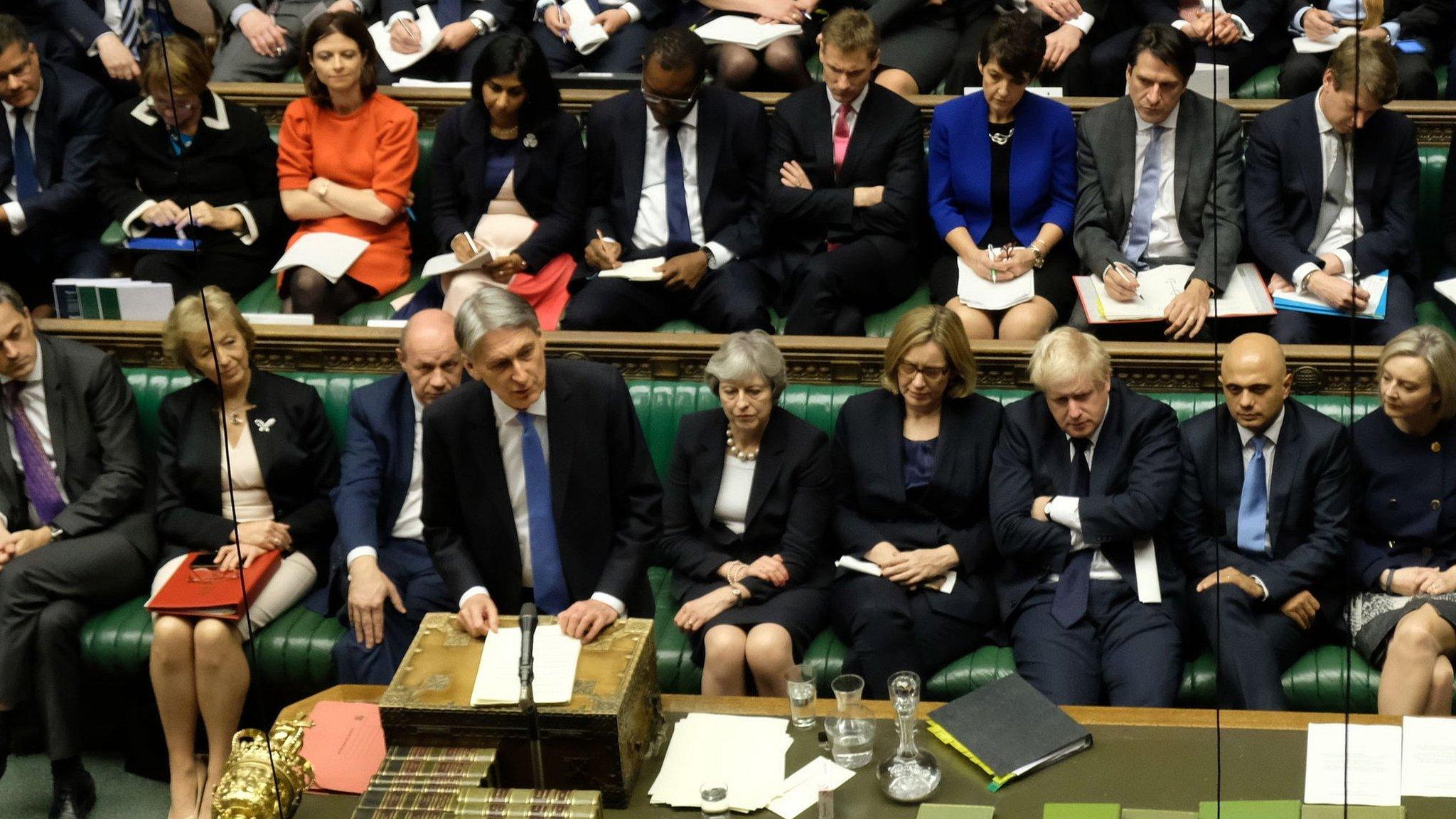
- Published22 November 2017
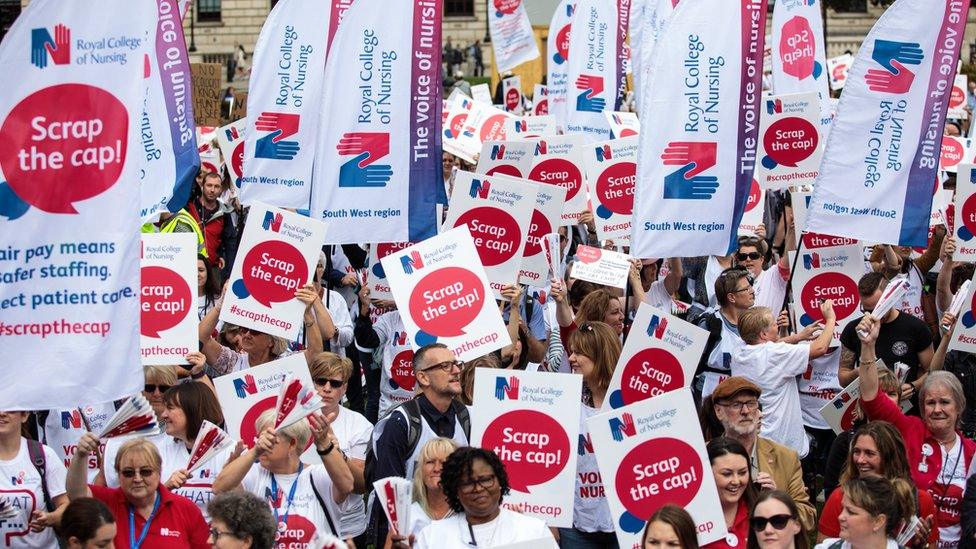
- Published3 October 2017
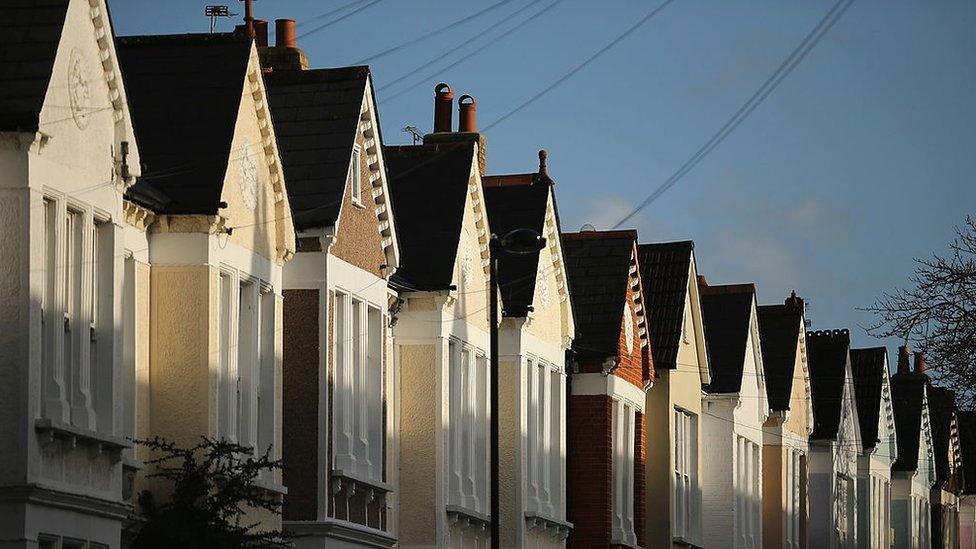
- Published21 November 2017
